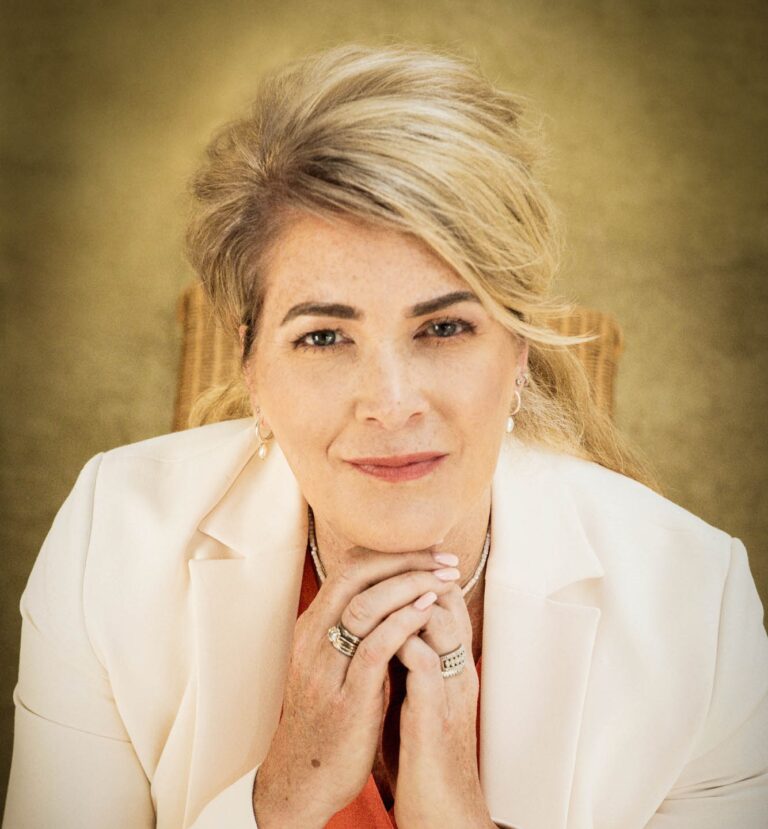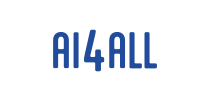Coding Ourselves Into the Future: Dr. Cara Antoine on Role Models, Inclusion, and the Learn-It-All Mindset
AI is changing how we live, work, and connect. But while AI is shaping a world for everyone, it is still being built by only a fraction of humanity. Women’s perspectives, experiences, and expertise are underrepresented in technology, which means the AI shaping our future doesn’t yet reflect the full diversity of society.
For Dr. Cara Antoine, Executive Vice President and Chief Technology, Innovation & Portfolio Officer at Capgemini Europe, these gaps are more than headlines or talking points; they are a call to action for inclusion. Ahead of her appearance at the AI4ALL Summit panel “From Data to Design: Why AI Needs Women Everywhere” she shared how her journey began, why women need to “code themselves into the future”, and how keeping technology human will define the promising years ahead.
Written by Myrthe van den Berg

A spark, a mentor, and four words that changed everything
Cara’s love of technology started in an unexpected way. “When I was 14, my brother and I were running around the house with the first battery-operated radio, which was my favorite object in the house because I loved music,” she said. “It went crashing to the ground and broke into thousands of pieces. I stood there, amazed, thinking, wow, look at what’s inside that radio. The circuit board, the intricately soldered wires in all different colors, each one connected to the speaker that had been carefully mounted.” The first thing she did the next day was to try to repair the radio and learn how all the parts worked.
That’s why she signed up for electrical engineering at school. “I was the only girl in that class,” she remembered. “My teacher gave me the four most important words of empowerment: ‘I believe in you.’ Just by saying that simple sentence changed everything for me.”
Those words didn’t just set her on a path toward technology, they shaped how she leads today. “It set me on a lifelong path of wanting to help others, especially women, to see themselves in technology.” Over the past few decades, she’s moved from electrical engineering through the process control domain, to IT, IOT, and now AI leadership, carrying that same message of belief to the next generation. Even in this conversation, she empowered me with encouragement and her rolemodelship example.
Approachable role models
As a teenager, Cara looked up to women like Amelia Earhart, Jane Goodall, and Grace Hopper. “Their inspiring stories were written in books, thought I couldn’t really reach out or ‘touch’ these individuals,” she said. “They were kind of intangible to me.”
Today, she sees a very different reality. “With the incredible ability we have to ping somebody or send them a DM or contact anybody you want online, you can actually connect with your heroes,” she said. “The lines of communication are very short.”
For her, that access can make all the difference. “We’re not looking to the social influencers of our time, per se, to be those who inspire us in tech. We’re looking for women who have been out there, who have done the hard and real stuff, who have been in the field of tech and paved their way.”
“When we miss women’s voices, bias becomes the default,”
Coding women into the future
When asked what happens when women’s voices are missing in AI, Cara didn’t hesitate. “When we miss women’s voices, bias becomes the default,” she said. “The future is only being written by half of humanity, and we miss the other half. Women need to code themselves into the future.”
That coding, she explained, goes beyond learning to code. “We need women to be coders, but we also need women’s data to be coded in. In this way, AI becomes more ethical, more empathetic, and more equitable.” Cara highlighted this with an example. “I talk to young women about working at a company like Instagram,” she said. “They love the platform, but don’t always realize it’s a tech company. Whether as a marketeer, designer, or coder, anyone curious about technology can be part of shaping the future.”
In her view, inclusion is not a “nice to have.” “It’s truly how we make the intelligence era human,” she emphasized. “And we’re actually seeing change. There are more women leading labs, shaping policies, and mentoring others. We’re not just asking for a seat at the table anymore; we’re building a bigger one, and I’m excited about that.”
She also emphasized the power of collaboration. “When women gather, ideas ignite. Whether it’s science or arts, energy, technology, manufacturing, or policy, us women have a unique ability to connect the dots that others might miss. That’s where innovation happens. It’s at the intersection of technology and humanity.”
Summits like AI4ALL create the kind of conversations that Cara finds most energizing. Bringing diverse voices together spurs new ideas, ignites thinking, and helps turn what she calls inspiration into action. By learning from each other, participants can raise the bar in industries that may be lagging and uncover new opportunities for shaping technology that works for everyone.
AI as a human story
For Cara, AI is not just about machines – it’s about us. “AI is not just about the algorithms. It’s how we live, how we work, and how we make better decisions every day,” she said. “AI will become our companion in the next five years. When we learn to augment ourselves, AI will enhance, benefit, and improve our lives.”
She gave examples that show how AI already touches everyone. “When we see doctors who use AI that can diagnose faster, teachers who can personalize learning paths, and cities that become more sustainable, it stops being a tech topic and becomes much more of a human one.”
Yet, Cara acknowledges that many people feel overwhelmed by AI. “Some have FOMO (fear of missing out) and some have FOGS (fear of getting started),” she explained. “Sometimes both at once. People want to engage, but they don’t know where to start.” She encourages embracing a “learn-it-all” mindset: experimenting, learning continuously, and connecting insights across fields. “That’s where ideas ignite, and that’s how AI can truly enhance our lives.”
The biggest challenge isn’t the technology itself. “The hardest part of the whole transformation we’re experiencing is not the technology. It’s the human part. Every person in every role will need to adapt and upskill in order to thrive. AI is not built to replace us, however those who learn to use AI and scale with it, will.”
Designing AI to enhance, not replace, humanity
Cara sees AI as “the electricity of our time,” powering change across every part of society. But she stresses, “We all have to be asking ourselves, how could AI make what I do a bit better? How can it make things fairer, more meaningful? When we each learn a bit every day and keep the human at the center, that’s how we make most of it.”
She points to pop culture for inspiration: “If you look at what Taylor Swift has done with her Eras tour, she leverages technology to be successful. From robotics on stage to digital design and her use of social media platforms. She’s learned how to use these tools to her advantage.” This demonstrates that blending tech with a focus on human connection with her fans, amplifies the impact of innovation.
Also in business, keeping human connections matters just as much. “When you have customer-facing roles, you want to keep that human connection strong. You don’t want to replace that experience with a chatbot.”
Looking ahead, she remains hopeful. “I imagine a future where AI helps us all make wiser choices for both people and the planet, built by diverse minds who care. Our speed of possibility has outpaced our speed of preparation,” she said, “but I see it as more of an opportunity than a scare factor, because there’s so much benefit that can come when we dream it, believe it, and make it real, and leverage AI for the good to create the future we want.”
Join the conversation
Dr. Cara Antoine will join Marzieh Fadaee (Cohere Labs), Sasha Rebel (AWS), and Monika Tomczak-Górlikowska (Prosus) for a panel moderated by Karen Harriss at the AI4ALL Summit on November 5th. Together, they will explore how women are shaping a more ethical, innovative, and inclusive AI future. Join the conversation and help design an AI-powered world that truly represents everyone.
© AI4ALL | 2026
